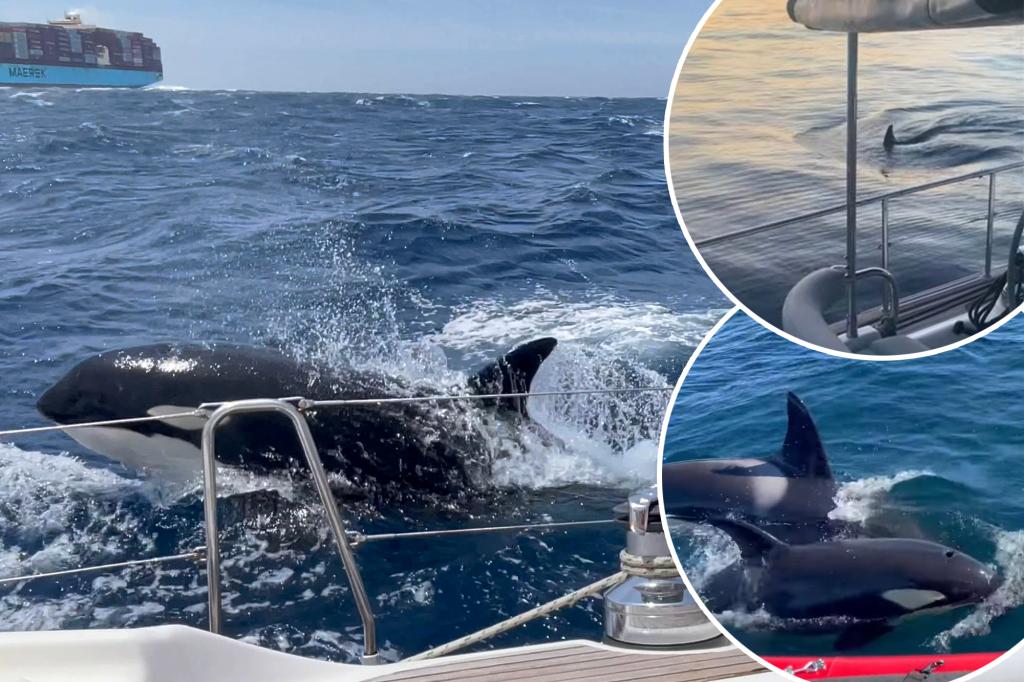In recent years, a small group of orcas off the Atlantic coasts of Europe have been causing trouble by ramming into boats, with nearly 700 vessels being affected. However, a new report reveals that the reason behind these dangerous encounters may simply be the result of young orcas engaging in play. Researchers believe that the orcas, especially off the shores of Spain and Portugal, are bored in the sea and are using the boats’ rudders as a source of amusement.
According to experts, the adolescent whales have turned the act of jutting rudder pieces loose into an aquatic sport as they have time on their hands. They are believed to be enjoying what they are doing, but they do not realize the harm they are causing to the boats. The behavior of the orcas is seen as a trend that they have picked up, as it is in their nature to follow trends, especially the younger ones for short durations of time. This behavior is thought to show off the intelligence of the orcas more than anything else.
Naomi Rose of the Animal Welfare Institute pointed out that in the late 1980s, whales would carry salmon on their heads because others were doing the same, demonstrating their penchant for following trends. However, she believes that the current behavior of the orcas is more sophisticated and emphasizes their intelligence. The playful behavior of the orcas has been observed to be seasonal, peaking in the summer months when boaters are most active in the water and decreasing in the fall.
One way for boaters to address the problem of orcas ramming into their vessels is to drape stringy protuberances from their rudders. This method works because the strands resemble jellyfish, which the orcas despise. The orcas targeting boats for play indicates the level of intelligence and adaptability of these marine mammals, showcasing their ability to interact with their environment and find amusement in unconventional ways. By understanding the motivations behind their behavior, boaters and researchers can better coexist with these intelligent creatures and prevent harm to both the orcas and the vessels they encounter.


